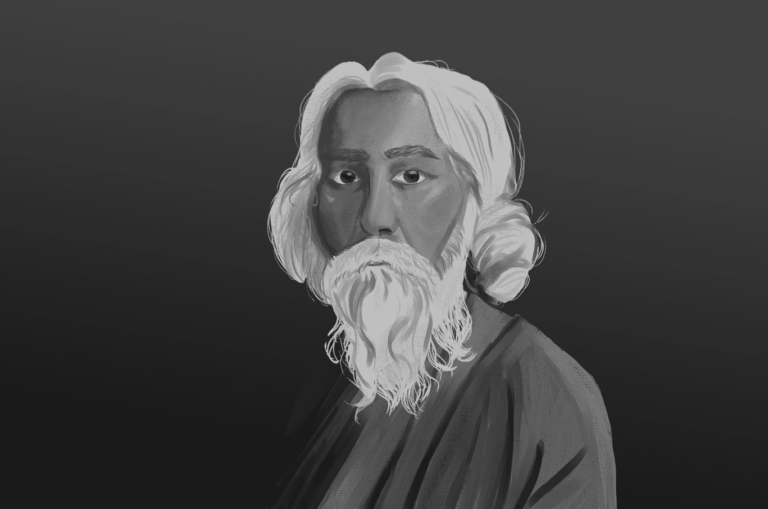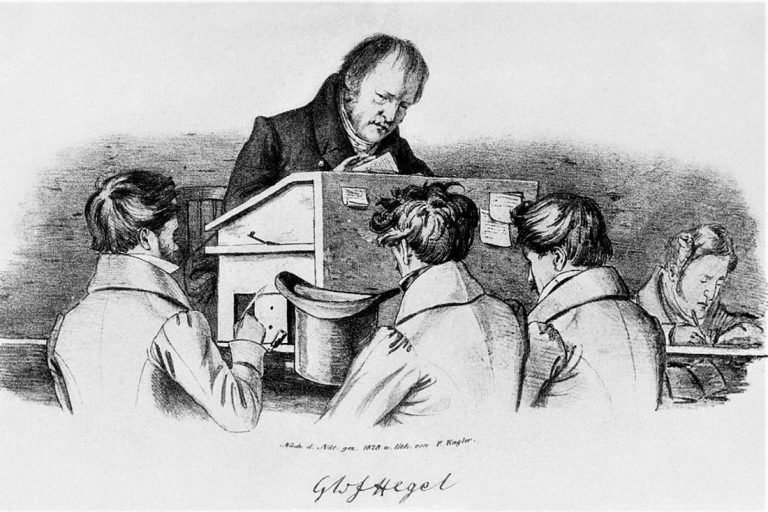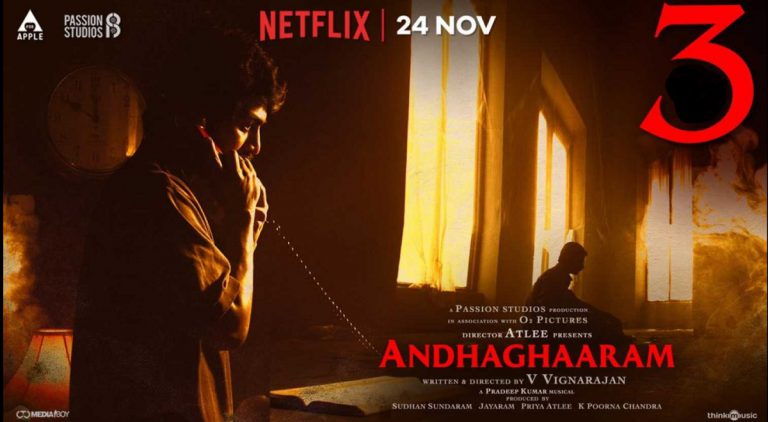The ‘missing’ joy of Research
Anuraag is a ‘Contributing Writer’ at the journal.
First, a DISCLAIMER− The current article is not aimed at being another run-of-the-mill patronising piece on research methodology or the ethics of research. Neither is it meant to be a recruitment poster with the intention of pushing more people into the ‘hallowed corridors’ of research. It is just a summation of personal thoughts, experiences, and observations as a researcher/research scholar in the current age India. Also, it is a super long read testing your stamina to focus.
For many Bharatiya Millennials[i], early Gen Zs[ii] and Gen Transition (T) – a term coined by me to refer to those born in the buffer zone or the transition period (1996-2000) between Millennial and Gen Z like my own self (1997), the movie 3 Idiots[iii] released in 2009 was and remains a crucial part of the zeitgeist[iv] of our times back then and to some extent even now. Starring Aamir Khan, R Madhavan and Sharman Joshi in the lead roles of Rancho, Farhan, and Raju respectively as three students of an engineering college, the plot follows the turns and travails faced by each of them emotionally, academically, and even romantically during their time in the college, but with a comic flavour and sense of humour. For us teenagers at that time while we often found ourselves in the shoes of Raju or Farhan as we were being pushed to choose the battleground of JEE (Joint Entrance Examination) or AIPMT (All India Pre Medical Test), what attracted and inspired most of us was the rebellious attitude of Rancho. Especially his courage to stand up and think differently or follow his passion as opposed to the conventional rat-race mentality represented by Dr Viru Sahastrabuddhe or Virus (portrayed by Boman Irani) the principal antagonist of the film.
As the film progresses, the ‘rebellious mindset’ of Rancho also starts influencing Farhan and Raju who start facing their own fears and challenges. This leads to Farhan confronting his father (portrayed by Parikshit Sahni) and expressing his decision of not sitting for the engineering placement interview but instead following his lifelong dream of becoming a wildlife photographer. In that particular scene, Farhan’s dialogue – “Rancho bohut simple si baat kehta hai…jo kaam mein mazaa aaye usse apna profession banao…phir kaam kaam nahi khel lagega”[v] (Rancho says a very simple thing… make your passion into your profession… then work (job) will not seem like work but enjoyment) − sums up in one line the entire film’s message to the wider society. This message especially resonated with our generation as we were trying to find our own courage to face the ‘Viruses’ of our lives− parental pressure, peers, teachers, relatives, and coaching centres.
Following Rancho’s above dictum, despite being a 10 pointer CGPA in CBSE (Central Board of Secondary Education) I chose to enter the stream of Arts & Humanities, while conventional desi norms of that era expected me to enrol in Science and either become a Doctor or Engineer. This was also due to my flair for creativity and writing as well as interest in fields like History and Political Science which made me tread upon, to quote the American poet Robert Frost, ‘the road not taken’ [vi]. But most importantly, the major factor was the unhindered freedom offered to academic creativity and imagination in the field of Humanities as opposed to the relatively bounded STEM fields. However, coming to the present, as a researcher in the Indian academic environment, there seems to be a lack of joy or passion missing in research for which the latter appears more like kaam (forceful work) than khel (enjoyment born out of passion).
The above is especially true among the current generation of enrolled PhD or Doctorate scholars in Indian universities and even among those struggling to enter the research world in India through University entrances or the UGC-NET (National Eligibility Test) conducted under the aegis of the University Grants Commission (UGC). Not to mention the endangered and even outright extinct status of ‘joy’ among our contemporaries in the corporate world reeling under the ‘hustle culture’[vii] actively lionised by Narayana Murthy & Co[viii] (including international icons like Jack Ma[ix]) as youngsters like Anna Sebastian Perayil[x] continue to be sacrificed on the altar of deadlines and company profits. No wonder, that we rank 126th out of 143 countries in the World Happiness Report (WHR) of 2024[xi]. When jobs and research are motivated solely by the need to earn bread or a degree instead of passion, then how can one expect joy and happiness?
What is Research?
Research is defined as, per the Cambridge dictionary, as a ‘detailed study of a subject, especially in order to discover (new) information or reach a (new) and better understanding’[xii]. The essence of research lies in the word itself− ‘re search’ or the act of embarking on a search again in an already existing ‘researched’ as well as un-researched phenomena to find something new and add to the already existing understanding or knowledge of the said phenomena. The Western Sydney Website, in its definition of research, goes on to add ‘use of existing knowledge in a new and creative way so as to generate new concepts, methodologies, and understandings’[xiii].
For the purpose of the article, emphasis should be laid upon the ‘new’ and ‘creative’ aspects of research− possible only when driven by the passion or joy of researching rather than going through the motions only for the sake of earning a doctorate and adding the prefix Dr to one’s name. Besides, as researchers, we are taught in the Research Methodology (RM) class that the ultimate objective of research is to ‘serve’ the wider society and nation by proving to be ‘useful’ in helping the latter address the pressing and important issues of the time. But how can research turn out or stand up to the mark of ‘being useful’ to the society & nation, if it’s not done with passion or joy but rather with the mechanical and instrumental intention of just earning a doctorate or as a stepping-stone towards the teaching profession?
Lack of Joy in Research
I believe that the current lack of joy and passion in research can be attributed to three major factors. Again, I would like to reiterate that these ‘findings’ or assumptions of mine are not backed by any credible quantitative analysis but, as stated in the outset, have emerged from my own experiences, observations, and anecdotal conversations I had with friends and peers.
Oversaturation of Researchers
Firstly, there appears to have emerged an ‘oversaturation’ of researchers or potential researchers who wish to enrol into PhD programs offered by institutions across the country. While most of them are motivated by a genuine desire or passion for research, there also is a significant number of applicants who enter research only for instrumental reasons or just as an ‘employment safety’ measure. By ‘employment safety’ measure, I mean those who enrol into PhD programs as a ‘second hand or Plan B’ option as they were unable to secure their dream jobs or not find opportunities in fields of their liking. In other words, pursuing research or PhD in India has become akin to the ‘UPSC ki taiyaari kar raha hoon’ (I am preparing for UPSC) as a last-minute option or back up plan when everything else falls apart. Such an attitude has been further accentuated, as per Saikat Majumdar, by the failure of the post 1990 LPG (Liberalisation, Privatisation & Globalisation) economy to cater and fulfil the aspirations of the ‘millions of young Indians, particularly from rural and provincial locations, who see no new job prospects in the private sector’ and hence ‘fall back on the scramble for government jobs’[xiv]. And along with government jobs, now PhD admissions. This is especially true of graduates and post graduates from Arts & Humanities programs, who unlike their STEM and Commerce/ Accounting counterparts, are not easily able to enter the corporate job market which is already being strained by the emergence of critical emerging and disruptive technologies like Artificial Intelligence (AI)[xv]. Hence, along with UPSC and other State Service Examinations, another pathway for ‘safety’ is provided by the route of PhD→ Doctorate→ Job in Government University/ Institution− again, the trajectory here is not foolproof given the salience other factors like scholars’ API (Academic Performance Index− the number of articles published in high profile journals) and high levels of competition with increasing PhD holder applicants. Not to mention the ‘hushed up’ and ‘open’ instances of ‘backdoor entry’ given to ‘ideological favourites’ in PhD admissions as well as jobs in the era of increasing ‘ideological washing’ of universities[xvi].
So, in the midst of intense competition for PhD seats motivated by instrumental reasons as well as the emerging backdoor entry system, those who wish to enter academia/research with the ‘passion of a madman for research’ are often faced with numerous hurdles and sometimes are ‘not able to make the cut.’ Compounding the above, is the recent move to use NET exam scores for PhD admission announced this year as well as the form of earlier in-house PhD entrance examinations− both based on the Multiple-Choice Question (MCQ) system where success is determined by rote learning than the acquisition of critical research thinking or insights[xvii]. As a result, the research produced by ‘instrumentally driven entrants’ and ‘backdoor candidates’ would be half-hearted in nature where the thesis is viewed only as a task to get done with (anyhow) rather than as the pinnacle of one’s toil, love, and devotion of years.
The above nature of competition has also extended to the realm of Post- Doctoral Research i.e. the next step after the completion of PhD. Once seen as optional, now it has become compulsory to not just stop at obtaining a Doctorate but jump into a postDoc program in the light of the ‘oversaturation’ of PhD holders in the academic job market− words of advice given to us by one of our young faculty in my own university. Gone are the days of my mother (a Researcher and Faculty herself now retired) when pursuing research was not a ‘compulsion’ affecting your breadwinning skills− those who did were motivated by love for research (along with the possession of necessary financial- social capital). Obtaining a PhD led to an increment in your rank and salary but its non-availability did not hinder you from seeking a teaching job in colleges. Coming to our times, it’s not enough to chant the old mantra of ‘Publish or Perish’ but ‘Pursue (PhD & Post Doc) and Publish OR Perish’.
Lack of alternate opportunities or awareness
The second factor has been partially touched upon in the first. It is the general lack of alternate opportunities and necessary skills for job seekers hailing from Arts & Humanities background in other fields . The lack of skills, not just for Arts Students, but Indian young graduates in general has become a major crisis with ‘one out of two (graduates) not readily employable, straight out of college’ or lacking the skills necessary for employment as per the Economic Survey of 2023-24[xviii]. This absence of ‘employable skills’ has been most stark amongst those from non-STEM backgrounds. Or to put it in the other way, non-STEM students have not received adequate exposure or guidance as to how their skills can be utilised in fields other than academia. A prominent example which comes to mind is the hiring of psychologists or psychology degree holders by business & market firms to use the skills of the former in analysing and determining customers’ behaviour to certain products as well as optimum methods on how to target the consumers’ psyche through ads or catchy tag lines− they are known as Marketing Psychologists[xix].
It is the need of the hour to redirect Humanities students to these other opportunities available in the job market to reduce the pressure on genuine researchers as well as the ‘oversaturated’ research field. At the same time, in my opinion, the market too has failed to adequately consider and utilise the unique talents and perspectives brought by Humanities passouts to the table.
For the above to happen, it is of utmost importance to break the artificial barrier between the realms of Liberal Arts/Humanities and the market/corporate world outside. Breaking barriers refer to the discarding of the outdated opinion that skills such as creative expression and critical thinking developed and honed in the Liberal or Humanities programs have no value/utility in the wider job market. In order to facilitate the above, the regular interaction between universities and companies, think tanks, consultancy, and other firms through seminars, internship opportunities and other kinds of tie-ups and collaborations should be made an integral part of the Humanities based programs offered.
As an example, taking my own field of International Relations (IR) as well as the related field of Defence & Security Studies (DSS), other than academia the other viable option remains interning in think tanks and policy circles which are most often unpaid or underpaid. A more lucrative alternative is the field of Geopolitical Risk Analyst (GPRA)[xxiii] which has a significant demand in the face of an era of increasing geopolitical uncertainties and vulnerability of global supply chains. The primary task of a GPRA is to keep track and analyse the geopolitical situation of a particular geographic location (eg South Asia, Eastern Europe) or a country (India, Poland) where a firm wants to invest or shift its production base and advise/ suggest the latter on the costs and benefits of such a move. Awareness and exposure to opportunities including internships offered by India-based Risk analysis firms such as WoRisGo[xxiv] through seminar-based or classroom interactions between firm members and students is one major step in addressing this deficit. Another major step is the inclusion of a course or a paper on Risk Analysis in the IR and DSS programs across universities in India so that students can be honed with the necessary skills during their undergrad or postgrad years itself. An example is the PG Diploma in Geopolitical Risk Analysis offered by Amity University[xxv].
Going further down, the crisis of opportunity outlined above can be tackled in the level of school or primary education itself. Given the nature and attitude of Indian society at large, our education system has tended to put emphasis on and even ‘glamorise’ academic excellence over vocational efficiency. In view of the current times undergoing rapid changes, there have been increasing calls to revamp the current system of education focused solely on theoretical knowledge and also included courses on vocational and practical skills. Especially financial literacy (taxes & investment), online trading, coding and others which have a burgeoning demand in the outside world. To that end, while the New Education Policy (NEP) of 2020 advocates integrating vocational education with mainstream schooling[xxvi], it should be ensured that the above objective is effectively implemented to prepare the upcoming youth for the vagaries of the ever-evolving job market. An example which could serve as a model is the Business Blasters programme and the attendant Entrepreneurship Mindset Curriculum (EMC)[xxvii] of the Delhi government which is aimed at fostering the entrepreneurial spirit among the higher secondary school students by offering Rs 2000 as seed money to start their own projects.
Such measures will facilitate the development of necessary skills as well as provide the necessary exposure which will arm students (from all the three Streams) to explore other avenues rather than joining the ‘oversaturated’ race in UPSC or Academia, thereby allowing space to genuine aspirants of Civil Service and Research.
Orthodoxy of Departments
The third major factor is the orthodox and outdated outlook towards research topics and research maintained by Indian departments in general. While detractors based in elite and renowned universities such as Jawaharlal Nehru University (JNU), Delhi University (DU), Jadavpur University (JU), Ashoka, OP Jindal, Shiv Nadar, Amity, and others might be up in arms and fiercely contest my ‘contentious’ opinion, but it seems to be a fact that ‘innovative & pathbreaking/trailblazing’ research’ has been confined majorly to institutions based in and around metros like Delhi, Kolkata, Mumbai and Bengaluru−locations marked by an atmosphere of rich academic exchange and the presence of academic resources (public libraries, think tanks, everyday conference, and seminar events, etc). But their peers i.e. central & state universities & colleges located in remote regions and cities marked by the absence of a tradition of academic rigor as well as lack of opportunities, institutions, and departments are still stuck in a time warp where orthodox perceptions still guide the broad contours of research as innovative ideas often do not find many takers (Again let me remind the reader that it is my own viewpoint based on personal experience. If I am proved wrong regarding this, I will be more than happy).
Orthodoxy, as mentioned above, is meant to denote the traditional mindset of the belief in the hard walls of separation between disciplines like History, Political Science, Psychology, Literature, International Relations & Security Studies, Ecology & Environment, and others with minimal or no interaction between them. There is not much inclination to explore the areas of intersection or common ground between disciplines with more shared ground such as Psychology and Literature or those which appear outrightly ‘dissimilar’ such as History & Environment/International Relations & Film Studies−interdisciplinary or multidisciplinary nature of research topics. At an era when multidisciplinary or interdisciplinary studies and exchanges are being actively encouraged in universities abroad and in Indian metros, the institutions and departments cited above seem to have taken Daisy Shah’s dialogue in Race 3 (2018) – “Our Business is our Business. None of your Business.”[xxviii] to heart. Hence, the refusal to think out of silos and the doling out of research topics and theses based on the same old geriatric ideas and assumptions.
Hailing from undergraduate and post-undergraduate backgrounds spent inhaling the air of Tata Institute of Social Sciences (TISS) Guwahati and Ashoka University which fostered interdisciplinary thinking and the rejection of borders between STEM and Liberal Arts & Social Sciences, the above-entrenched attitude has often made me feel suffocated and uncomfortable. So, what can be done to alleviate the current condition and allow innovation to grasp breaths of fresh air?
The need of the hour is to address the deficit in interdisciplinary academic ‘intercourse’ and by extension, the colonial ‘hangover’ of the aim of education or research being only to produce workers for the ‘academic’ market. The need is to give due recognition to knowledge not just as a means (to a stable job, higher API score, etc) but as an end in itself − Knowledge Creation[xxix] or the birth of new and ‘rebellious’ ideas within respective disciplines. If the ultimate objective of research is the service of society and nation (as mentioned above), then this also entails the responsibility to jostle the academic/research world by challenging its long-held ‘core’ and ‘sacrosanct’ orthodox ideas so that the research undertaken under the said discipline/department is compatible with the rapidly changing society outside. Incorporation of new ideas which are relevant and in sync with the current times would allow researchers to serve society better.
To illustrate the above point further, I would like to take an example from my own field of IR. Within IR, traditional theories like Realism and Liberalism[xxx] have often ingrained us with the notion of the ‘nation-state’ being the sole actor in global politics with any kind of transnational, international, or cross-border identities and affiliations including organisations like the UN being mere bystanders to the realpolitik among nations or temporary phenomena to eventually fizzle out. However, current manifestations of cross-border or transnational and international solidarities say otherwise. The Indigenous People’s Pavilion[xxxi] which saw the coming together of members, activists and key members from Indigenous communities across the world− from Santhals in India to the Maori of New Zealand and the Mapuche of South America− to voice out their shared concerns at the Conference of Parties (COP) 2021 in Paris is a case in point− no matter whether you were located in the forests of Central India or under the shadow of Amazon, we will and are bearing the brunt of climate change given our shared vulnerabilities despite being miles apart.
Similarly, the continuing Israeli- Hamas conflict in Gaza and the wider West Asian region since October 2023 saw ripples across the Atlantic and Indian Oceans in the form of protests, solidarity marches, demonstrations and even violent clashes occurring in cities of Europe[xxxii], campuses such as Columbia University[xxxiii] and even spaces like Jantar Mantar in India[xxxiv] . This begs a question as to why and how did an event happening on a tiny strip of land in a remote corner of the West Asian map has been able to generate such massive expressions of solidarity and counter protests in countries such as Germany, France etc which are miles away from Tel Aviv or Rafah and that too of such intensity that it has forced Western governments to reckon with questions on Israel, changing demographics and morality?
Although the full implications of such transnational solidarities are yet to be seen, these are potential topics for rigorous research that should be explored, and who knows might end up ‘revolutionising’ long-held concepts.
The next major step would be the encouragement of multidisciplinary research involving the convergence of two or more departments. This could also entail a research topic or scholar being guided by two supervisors from the two departments in question. While there might be the challenge of the department or the university not having faculty possessing the expertise and domain knowledge required to guide the research scholar, an important solution is the hiring of faculty whose expertise lies in domains other than the traditional ones within a particular discipline. Another solution is the system of joint/split PhD which involves pursuing research simultaneously at two or more degree-awarding institutions (different universities or different departments within the same university) and two or more supervisors from the respective institutions as prevalent in the West[xxxv].
Such reforms, if adopted, could lead to the fructification of unconventional research topics which would pave the way for departments gradually shedding the shyness and orthodoxy of the past and becoming more accepting of ‘exciting and whacky research.’ It’s time, for both researchers and departments, to think ‘out of the box’ rather than being trapped ‘within the walls of their own boxes’.
But most importantly, an academic process marked by lesser burden or saturation, absence of ‘rat-race’ like undue competition and a more open-minded acceptance of unconventional ideas/ topics would go a long way in fostering an ambience where research is seen as the khel of credibly exploring ‘outrageous’ ideas rather than the kaam of half-hearted regurgitation of old and dusted theses.
If the ancient Greek adage goes ‘a sound mind rests in a sound body’[xxxvi] then I would like to invent a new one− ‘a sound research/thesis is produced by a sound & happy researcher.’
Let’s make research joyous again!
References
- Millennial, Britannica (https://www.britannica.com/topic/millennial)
- Generation Z, Britannica (https://www.britannica.com/topic/Generation-Z)
- 3 Idiots, Wikipedia (https://en.wikipedia.org/wiki/3_Idiots)
- Zeitgeist, Merriam- Webster (https://www.merriam-webster.com/dictionary/zeitgeist)
- ‘3 Idiots- Abba mein Engineer nahi banna chahta- Madhavan- Parikshit Sahni Scene’, Filmy Duniya, YouTube (https://www.youtube.com/watch?v=vWouk7Y38RE)
- Frost, Robert, ‘The Road Not Taken’, Poetry Foundation (https://www.poetryfoundation.org/poems/44272/the-road-not-taken)
- [vii] Kennedy, P John J, ‘Transform workplaces into supportive spaces’, The Hindu, 10 October, 2024 (https://www.thehindu.com/opinion/op-ed/transform-workplaces-into-supportive-spaces/article68737624.ece)
- Perumal J, Prasanth, ‘Why Narayana Murthy is wrong about the 70- hour work week’, The Hindu, 3 November, 2023 (https://www.thehindu.com/business/why-narayana-murthy-is-wrong-about-the-70-hour-work-week/article67476814.ece)
- ‘Jack Ma endorses China’s controversial 12 hours a day, 6 days a week work culture’, CNN, 15 April, 2019 (https://edition.cnn.com/2019/04/15/business/jack-ma-996-china/index.html)
- ‘EY Pune Employee, 26, died due to work stress. No one from company attended her funeral’, Hindustan Times, 18 September, 2024 (https://www.hindustantimes.com/trending/ey-pune-employee-anna-sebastian-perayil-26-died-due-to-work-stress-no-one-from-ernst-young-attended-funeral-101726637649530.html)
- ‘India’s low rank in the World Happiness Report puts reasons for dissatisfaction in focus’, Frontline, 27 March, 2024 (https://frontline.thehindu.com/news/india-ranks-126th-out-of-143-nations-in-global-happiness-index/article67994475.ece)
- ‘research’, Cambridge Dictionary (https://dictionary.cambridge.org/dictionary/english/research)
- ‘Definition of Research’, Western Sydney University (https://www.westernsydney.edu.au/research/researchers/preparing_a_grant_application/dest_definition_of_research)
- Majumdar, Saikat, ‘Coached for disaster’, The Telegraph, 30 May 2024 (https://www.telegraphindia.com/opinion/coached-for-disaster-the-cat-interview-room-as-a-creche/cid/2023415)
- Sharma, Shankar, ‘AI will crush India’s demographic dividend to demographic debt’, moneycontrol, 13 November, 2024 (https://www.moneycontrol.com/news/business/ai-will-crush-indias-demographic-dividend-to-demographic-debt-12865412.html)
- Majumdar, Saikat, ‘Ideology’s assault’, The Telegraph, 03 January, 2024 (https://www.telegraphindia.com/opinion/ideologys-assault-humanity-after-the-humanities/cid/1991164)
- Mitra, Amit, ‘The net result will be poor doctoral research’, The Hindu, 03 October, 2024 (https://www.thehindu.com/opinion/op-ed/the-net-result-will-be-poor-doctoral-research/article68710065.ece)
- ‘Only one in two Indian graduates unemployable: Economic Survey’, mint, 22 July, 2024 (https://www.livemint.com/economy/economic-survey-employment-employability-non-farm-jobs-gig-workers-apprenticeship-programs-vocational-training-11721645941539.html)
- ‘Marketing Psychologists: What are they doing and how can you do it too?’, Psychologist – License. Com (https://www.psychologist-license.com/articles/marketing-psychologist/)
- Higgs, Kerryn, ‘How the world embraced consumerism’, BBC, 21 January, 2021 (https://www.bbc.com/future/article/20210120-how-the-world-became-consumerist)
- ‘Edward Bernays’, Britannica (https://www.britannica.com/biography/Edward-Bernays)
- ‘Sigmund Freud’, Britannica (https://www.britannica.com/biography/Sigmund-Freud)
- ‘All about the job of geopolitical analyst: studies, salaries…’, HEIP (https://www.heip.fr/en/school/faqs/all-about-the-job-of-geopolitical-analyst-studies-salaries/)
- WoRisGo (https://www.worisgo.com/)
- ‘PG Diploma in Geopolitical Risk Analysis’, Amity University (https://www.amity.edu/course-details.aspx?fd=FzNymoX3dH0=&cfn=yYinl2VuanIIJrNCnLiKvA==)
- ‘Government has taken several steps to provide Vocational Education to the youth’, Press Information Bureau, Ministry of Education, Government of India, 19 December, 2022 (https://www.pib.gov.in/Pressreleaseshare.aspx?PRID=1884941#:~:text=The%20National%20Education%20Policy%20(NEP,Innovation%20component%20of%20Samagra%20Shiksha.)
- ‘Delhi govt. launches course to encourage entrepreneurship’, The Hindu, 08 September, 2021 (https://www.thehindu.com/news/cities/Delhi/delhi-govt-launches-course-to-encourage-entrepreneurship/article36350734.ece)
- ‘Race 3- Official Trailer’, YouTube (https://www.youtube.com/watch?v=xBht9TG7ySw&t=30s)
- Majumdar, Saikat, ‘Indian universities must push knowledge as an end in itself’, Hindustan Times, 03 November, 2014 (https://www.hindustantimes.com/ht-view/indian-universities-must-push-knowledge-as-an-end-in-itself/story-IdGWDpSGO6I8qKz4Ai9uhK.html)
- Jumarang, Bea Kylene, ‘Realism and Liberalism in International Relations’, E – International Relations, 02 July, 2011 (https://www.e-ir.info/2011/07/02/realism-and-liberalism-in-modern-international-relations/)
- ‘Indigenous Peoples’ Pavilion at COP 21’, International Indigenous Peoples’ Forum on Climate Change (https://www.iipfcc.org/cop21)
- ‘Protest marches by thousands in Europe demand halt to bombing in Gaza’, Business Standard, 5 November, 2023 (https://www.business-standard.com/world-news/protest-marches-by-thousands-in-europe-demand-halt-to-bombing-in-gaza-123110500010_1.html)
- ‘Clashes erupt on UCLA campus between pro- Palestinian supporters and counter-protestors in LA’, The Hindu, 01 May, 2024 (https://www.thehindu.com/news/international/columbia-university-protests-live-updates-may-1-2024/article68127699.ece)
- ‘Setting aside fear of crackdown, pro- Palestine protest held at Jantar Mantar; no complaints, say police’, The Indian Express, 02 July, 2024 (https://indianexpress.com/article/cities/delhi/pro-palestine-protest-at-jantar-mantar-delhi-israel-hamas-gaza-war-9366730/)
- ‘Joint PhD and Cotutelle Programmes- A Guide’, Find A PhD (https://www.findaphd.com/guides/joint-phds)
- ‘The History behind Sound Mind and Sound Body’, CSU SIGEP (https://www.csusigep.org/sound-mind-sound-body)







